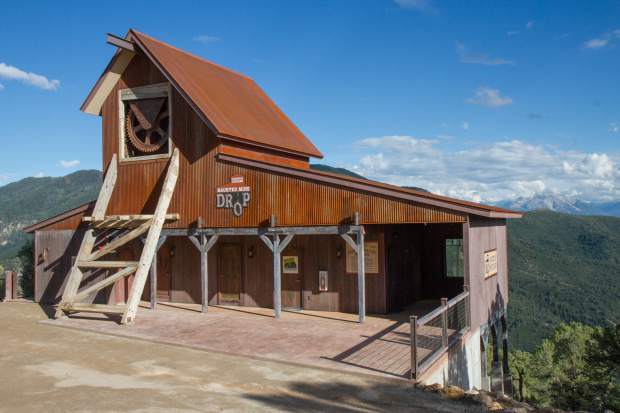The parents of the 6-year-old girl who died on a ride at Glenwood Caverns Amusement Park will have trouble holding the park liable for her death if they signed a waiver the park requires on her behalf, legal experts say.
Colorado law says the park and its employees cannot act recklessly, but those who sign a waiver agree “to let a business act negligently,” according to University of Denver Sturm College of Law professor Tom Russell.
And in Colorado, “a parent can waive liability for their children,” Russell said, noting other states such as New Jersey do not permit that. “That Colorado allows for this is amoral. It disregards children.”
Russell said parents may sign a waiver believing it isn’t actually enforceable. They are mistaken.
“The waivers tend to be enforceable if drafted properly,” Russell said. “If the waiver includes a negligence clause, then it’s a waiver for the inherent risks of the activity and the negligence of the business. That’s where the problem lies.”
Thousands of people annually ride amusement park attractions from the largest resorts to the smallest roving carnivals. Virtually all will have a liability waiver people either sign or passively accept by purchasing a ticket.
For example, Elitch Gardens’ website lists its terms and conditions on a link away from its ticket purchasing page. On it, in large letters, guests are told that by purchasing a ticket, they agree to hold the park harmless from all claims, including wrongful death, that could arise from its negligence.
Colorado laws governing wrongful death claims also limit any noneconomic damages to about $571,000, Russell said.
Recovering more would require showing a business was intentionally reckless, such as knowing a seat belt was unfastened or putting off critical maintenance for a less busy day. Otherwise, the liability waiver would apply and indemnify the business.
“If you’re gonna choose a state to be injured, Colorado is a bad one,” he said.
A copy of Glenwood Caverns liability waiver obtained from its website shows anyone wanting to use any of 15 different attractions – including the Mine Drop – specifically acknowledge that it is hazardous and “involves the risk of physical injury or death.”
More importantly, the waiver says riders “take full responsibility for any injury … including death” and waive all legal claims against Glenwood Caverns, including for “actual or alleged negligence.”
Liability law expert Shanin Specter, a professor at the University of California Hastings College of Law and an attorney in Pennsylvania, said while the enforceability of waivers is “an unsettled and developing area of law that differs from state to state,” he’s certain problems exist with an amusement park ride where a child dies.
“If a ride is so improperly designed or maintained or operated that a 6-year-old can plunge 100 feet to their death, there’s at least a superficial issue of recklessness,” Specter said. “Whether Colorado law permits a claim or not … a 6-year-old is incapable of being responsible for their own safety on an amusement park ride.”
But Russell said proving reckless conduct is difficult.
“It’s important to know what negligence means. It’s acting unreasonably,” Russell said. “A release that prospectively waives injury for negligence simply allows the business to operate unreasonably without consequence. Few judges in Colorado will say the action was reckless.”
Wongel Estifanos died Sunday while riding the park’s Haunted Mine Drop ride, a vertical free-fall that plunges down a mine shaft in about 2.5 seconds. An investigation into her death is ongoing. The Garfield County coroner’s office on Tuesday said she died from multiple blunt force trauma.
The details of the accident have not been released, but a 911 operator said the girl fell 110 feet, according to a copy of the tape released by law enforcement Tuesday.
The ride was intentionally designed without shoulder harnesses, a mainstay safety feature on most other vertical drop rides around the world. The ride has consistently passed safety inspections since it opened in 2017, state records show.
The park’s liability waiver acknowledges that the seat belt is “in no way a guarantee of safety” and that a rider can still be injured by “forces that exceed the limits of protection provided by a seat belt.”
“If the belts were loose and they didn’t know of it, that’s not a claim that will win,” Russell said. “Even if someone helped them board the ride acted unreasonably, carelessness on a busy day, that’s not a claim they can make.”
The state’s pro-business posture comes from years of litigation in which ski resorts were sued for the conduct of skiers who ventured off the slopes. That suddenly extended to the chair lifts where, like an amusement park ride, the patrons are more under the control of the resort.
Lawmakers changed the law several times, Russell said, making it difficult to hold faulty businesses accountable and limiting the amount of damages that could be assessed.
“The argument has been that if you don’t allow the waivers, the business won’t be able to operate,” he said. “If a business really, truly cannot operate unless it pushes the cost of negligent injuries onto its customers, then I argue that business is one that lacks social utility and should not exist.”
Specter said much of the Glenwood case is likely to hinge on what happened.
“I don’t know what will happen with the Glenwood Caverns case, but it will be exquisitely fact sensitive,” he said. “But my experience as a practitioner and law professor has been that usually where there is a wrong there is a remedy.”
This content was originally published here.

